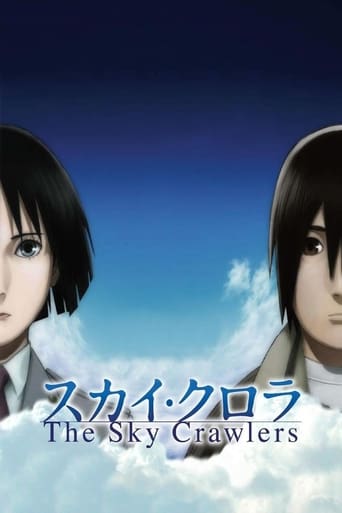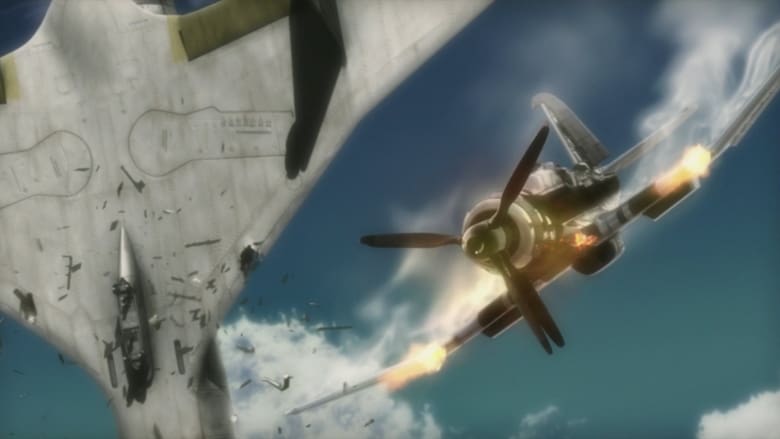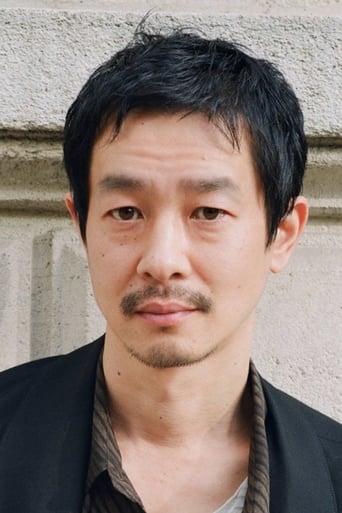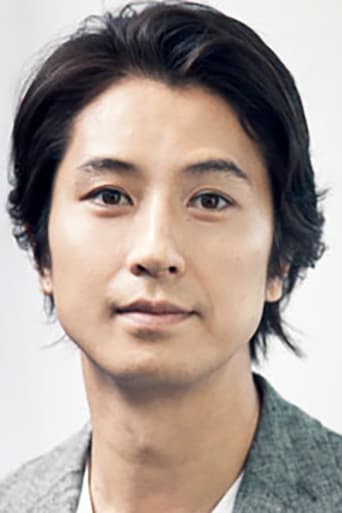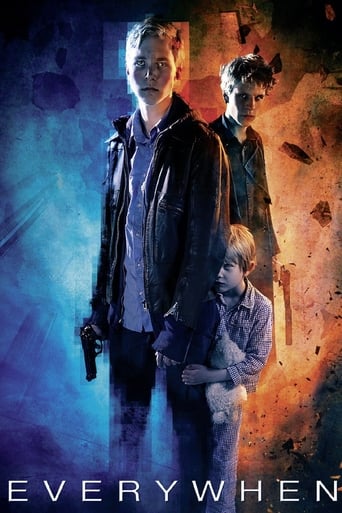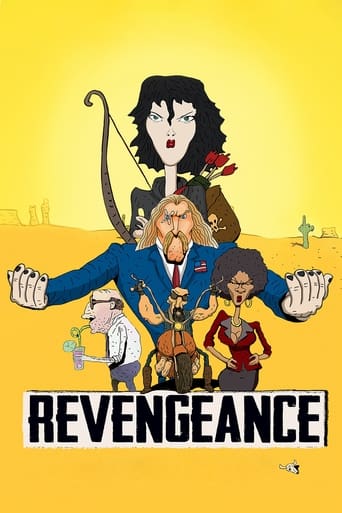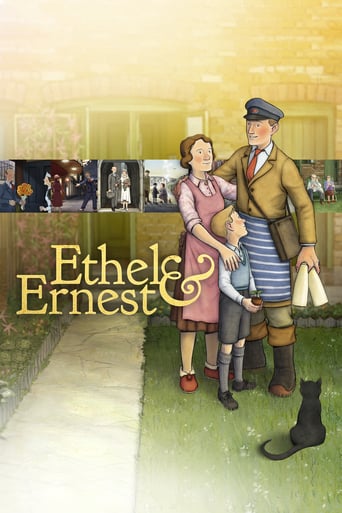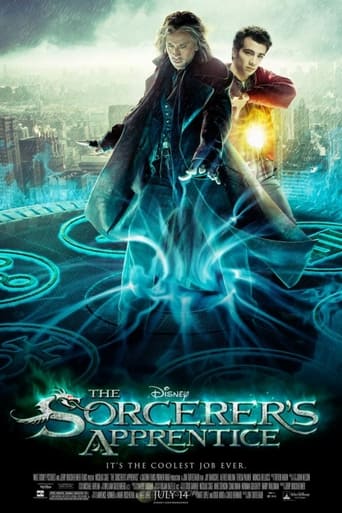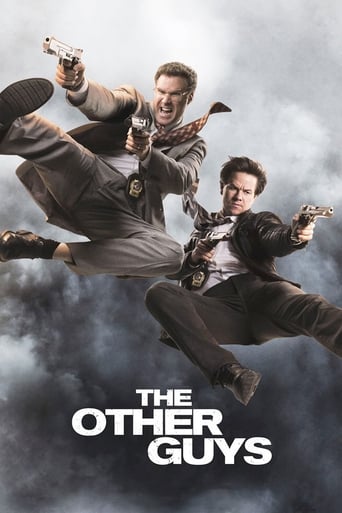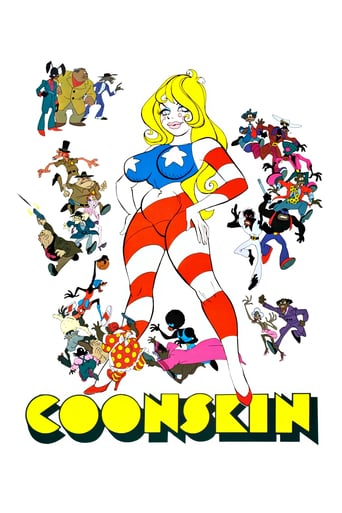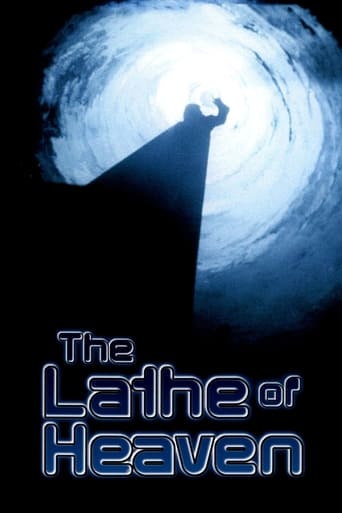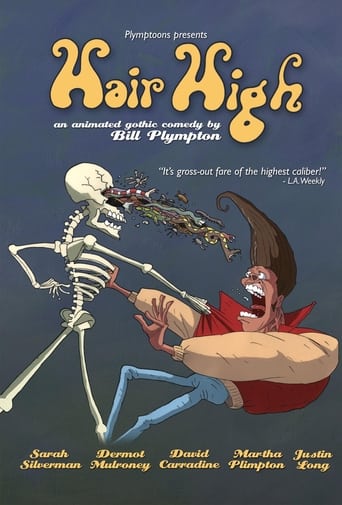The Sky Crawlers (2008)
Youngsters called Kildren, who are destined to live eternally in their adolescence. The Kildren are conscious that every day could be the last, because they fight a war as entertainment, organized and operated by adults. But as they embrace the reality they are faced with, they live their day-to-day lives to the full.
Watch Trailer
Free Trial Channels
Cast


Similar titles
Reviews
Plenty to Like, Plenty to Dislike
Perfect cast and a good story
Let's be realistic.
The movie turns out to be a little better than the average. Starting from a romantic formula often seen in the cinema, it ends in the most predictable (and somewhat bland) way.
The near future. Humanity has achieved some semblance of peace. To remind the masses of pain and suffering, and to inject wonder, gratitude and emotion into a world that has long calloused into apathy, multinational corporations stage elaborate wars fought by cloned fighter pilots called "Kildren". The corporations are named after German football teams. The Kildren do not age and remain in a state of perpetual adolescence."The Sky Crawlers" was directed by Mamourou Oshii, who cites Michelangelo Antonioni and Andrei Tarkovsky as influences. His film begins with Yuichi Kannami, one of many fighter pilot Kildren, arriving at a military installation. Everyone at the installation knows that Yuichi is simply a clone who's been assigned to them and died countless times before, but they nevertheless treat him as a "real" human being. It is a charade they're tired of maintaining."Why bother to grow up if I'm going to die?" Yuichi says early in the film, the line encapsulating his indifference to all things. Unfazed by the possibility that he may be bioengineered, a machine created for virtually no purpose, Yuichi spends his days drinking beer, playing war games, having sex and lazing about. He never questions who he is, why he's on the island or why he fights. He has no memory of what came before "now" and little regard for what will come next.Towards the end of the film Yuichi begins to develop some modicum of self-awareness. Seeking a kind of Sartrean authenticity, and desperate to end the charade he is caught up in, he takes to the skies. He is then mercilessly shot down by a fighter pilot called "the teacher". The following day (wait until the end of the credits) another clone of Yuichi appears at the military base. It then becomes apparent that each clone is destroyed or commits suicide prior to attaining self-awareness. For the Kildren, ignorance is bliss.The film is philosophically heavy, Oshii swimming in waters routinely visited by Antonioni. Today in Japan an estimate one million youths, or roughly one percent of the population, are classified as "hikikomori", which literally means "being confined". These are youths who have sequestered themselves in family homes and have little contact with the outside world. Having given up on the idea of being a contributing member of society these youths either remain unemployed or work in menial jobs, embracing stagnation and self medicating themselves with various post-industrial creature comforts. In addition to this, the number of students dropping out of school in Japan has doubled since 1990, and women are increasingly going on "womb strikes", refusing to have children. With this comes a shrinking work force and a fall in birth rates. An entire chunk of Japan no longer wishes to live.While many believe the "hikikomori" to be social misfits or psychologically damaged, it is better to think of them as an early warning signal. Like coal mining canaries, which were once used to detect toxic gasses, the "hikikomori" are a red flag, sensitive individuals who sense that something is wrong and so retreat to the wombs of their bedrooms to escape from a society they view as being toxic.Much literature has been written about the "hikikomori", but their existence essentially boils down to one thing: Japan is the world's first true post-modern nation. What you have in Japan is a conflict between East and West, between group and individual, between modernity and post-modernity. It is a country caught within a web of diametrically opposed forces, forces which are pressure cooked because of several relatively unique factors.So on one hand you have a country cocooned by walls of water. A country with a fixed national identity, heavy immigration restrictions, a rigid school curriculum, a homogeneous ideology, a society built on strong social mores, honour, tradition, hard work, loyalty, group-ism, specific aesthetics, a hierarchical structure emphasising the inequality between persons etc etc. And on the other hand you have a country which no longer believes in the myth of Progress. Which suffers the atomization of the family, the rampant feminization of men, which now heavily borrows and models itself after Western culture, and which, in the wake of the economic boom of the 1980s, finds the pursuit of material extravagance to deliver emptiness rather than inner contentment.Of course existential questions of meaningfulness and identity traditionally crop up in wealthy societies, as man's focus shifts from self-preservation to introspection. But Japan goes beyond this. Postmodernity is epitomised by relational identities, a loss of absolutes and widespread fragmentation. It abolishes the idea of fixed essences and leaves individuals to construct identities by appropriating from vapid, but always shifting, cultural and ethnic positions. End result: today the essence of the Japanese is "to have no essence", a stance which the "hikikomori" feebly rebel against.So at its core "The Sky Crawlers" is about a society of youths caught in limbo, refusing to grow up because they have nothing to live for. Stuck in stasis they become increasingly infantilized, soothing their pain with vices like anime, which in this film takes the form of "staged" or "theatrical" wars "fought by actors". Oshii, in other words, attacks the anime industry itself, an industry in which the same old thing is repeated ad infinitum, all with the same interchangeable boy pilot avatars. Resentful of a dead creative environment (see "Children Of Men", in which the future is literally sterilized) he urges his hero, and audience, to escape and strive towards something. Interestingly, this pursuit is seen to be suicidal. Dedicating the body to a cause is itself the decision to erode the body for that cause.Many complain that the film is too slow (even its dog fights are made banal), but those familiar with Antonioni will be at home here. The film isn't slow so much as it is beautifully nauseous. It's Antonioni's "Red Desert" with fighter jets.8.9/10 - Flawed masterpiece. See "The Tin Drum".
Just occasionally, you'll find a film where thew execution of drama over powers your awareness that the film is animated. The Japanese style is arguable the most exploitative of animation, which is why Mamoru Oshii's rather minimal and refined approach which he brings to The Sky Crawlers is extraordinary in it way. The film is rather static with little physical movement, elongated cutting, wide open Kurosawa type shots, psychological use of color, light and shadow, and a haunting and mystic score. The film is kind of cold, but with a scene of mystery which makes it seductive. Even when we are up in the air with dozens of aircraft, gunfire, and spectacular balls of fire, the film maintains it's sense of calm. Oshiii handles it almost like a ballet. This is not a kids movie, and it's not for those with a short attention span. It it a deep slow psychological piece. The ending is one that may divide an audience. Some will see it as giving The Sky Crawlers a sense of moral function, while others will argue that it makes the whole thing seem useless. I won't take either side. All I'll say is that I enjoyed the flight.
Oh boy, this was boring.Child pilots fighting meaningless battles. If they wouldn't slaughter themselves for the amusement of the population (who don't seem either amused or interested) they are supposed to be immortal - or at least unaging.The "actors" stalk around like emotionless zombies, which in all fairness was probably by design. Too bad that this causes viewers to develop zero bonds to any protagonist.Nothing is happening. Ever.Don't waste your time viewing this movie. I can sum it up perfectly: The philosophical background is the theory that humans don't appreciate peace unless someone is fighting a war somewhere. Thus corporations stage mock battles with real planes and real deaths to satisfy the unconscious demands of humans in a peaceful world. And since humans prefer other people dying to getting killed themselves, they clone child pilots to fight their battles for them, recycling them over and over. This movie shows a small part of the event-less lives of these ambition-less children.The End.Sounds interesting? Well, IT'S NOT! But hey, knock yourself out. Slightly more stimulating than counting sheep.
I know not everybody appreciates the parsimonious style and deep subjects which have the films directed by Mamoru Oshii,but I am delighted by the existence of a filmmaker who always offers us scenes of an amazing visual beauty and exciting action,but which are always endorsed by fascinating ideas.I think there is not any other contemporary director who combines the tools from modern cinema with philosophical monologues,metaphysical fantasies and analysis of subjects like,for example,the conscience or the soul.In summary,Oshii is not afraid of making unaccessible films for the casual spectator.With every new movie,Oshii seems to be more far away from the "normal" narrative,because from the humor and action from the saga Patlabor,he went to showing spiritual reflections in Ghost in the Shell; then,he criticized the ontological reality in Avalon; after that,he analysed the reality of the existence in Ghost in the Shell : Innocence; and now,he makes a study of the function and limits of memory in the construction of human identity in The Sky Crawlers,which may be his least obtained film to the moment,but it is still very interesting.The plot summary from this film may make it seem as it is focused on the causes and consequences of the war conflict it portrays.But reality is not like that.In spite of showing us some excellent scenes of air combat,the authentic melodrama from this movie is on the earth,pushed by laconic conversations and monologues which slowly and precisely show us an ambiguous image of the function of war,the fighters' identities and the curious condition which avoids them of growing older.But,as in Oshii's previous films,there are not easy answers or simple solutions to the questions raised by the characters,so the movie leaves the spectator the homework of taking out conclusions.I think that's the best element from this movie.As I said before,the sequences of air combat are excellent,because they certainly produce impact.The ending is ambiguous but it is satisfactory,because it closes the movie on a solid way.However,there are some fails on this movie.On a few moments,it gets a little bit tiring and there are other moments which feel pretentious.There are a few other fails,but they are minor.I liked The Sky Crawlers pretty much,but I do not know if I can recommend it to everyone.I found it very interesting but I am sure other people may find it boring.I do not think it is a great movie,but I appreciated its narrative and emotional complexity very much.

